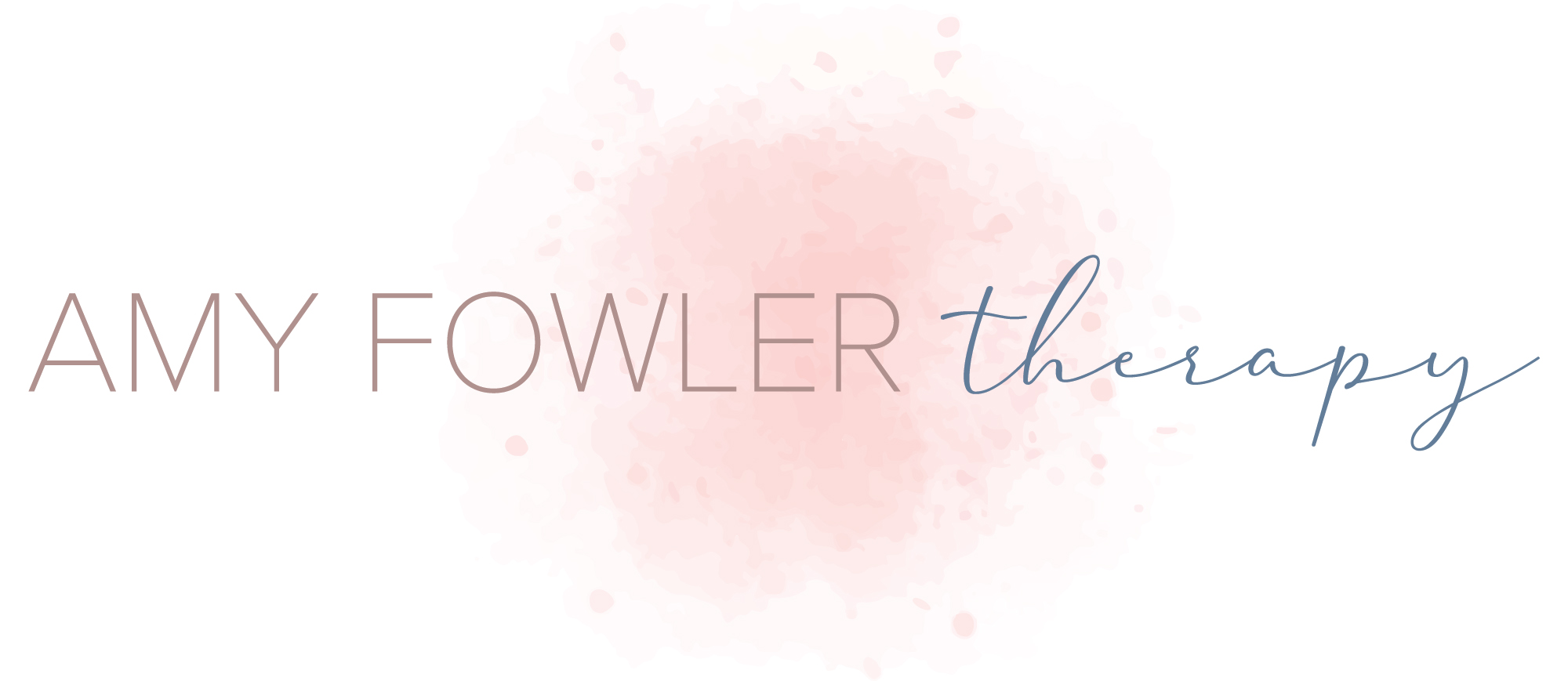Child Therapy in Haslet and North Fort Worth, TX

Helping Your Child Find Wholeness
When our children struggle with emotional or mental health issues, our next steps, as parents, can seem daunting. We’re here to help!
Mental health is a crucial part of a child’s overall well-being. Just like physical health, maintaining good mental health from a young age through accessible and affordable mental health treatment can significantly influence a child’s development, happiness, and ability to thrive in everyday life. Unaddressed mental health conditions can impact a child’s emotions, thoughts, behavior, and ability to learn. Early intervention is essential as it can prevent minor issues from becoming major disorders, helping children lead healthier and more fulfilling lives.
Amy Fowler:
Expertise and Experience

Amy Fowler, a seasoned school counselor and Licensed Professional Counselor Associate (LPCA), is dedicated to helping children move towards wholeness. With over 17 years of experience working with children and adolescents, Amy has honed her skills in addressing a wide range of mental health issues. She holds a Master of Education in Counseling and specializes in working with children. She has extensive experience helping children who have special needs, including learning disabilities, ADHD, autism spectrum disorder, behavioral issues, and emotional disturbances.
Amy’s unique approach combines evidence-based techniques to create a supportive and judgement-free environment where children can thrive. Her extensive experience and deep understanding of child psychology allow her to tailor her methods to meet each child’s unique needs, fostering growth and development in every aspect of their lives. Amy’s passion for child therapy shines through in her commitment to helping children and their families in Haslet, TX, and the Fort Worth area.
At Amy Fowler Therapy, we believe that every child deserves the chance to lead a happy, healthy, and fulfilling life. Our comprehensive child therapy services are designed to support your child’s mental health, emotional well-being, and overall development, ensuring they have the best possible start in life.
Benefits of Child Therapy at Amy Fowler Therapy
Choosing the right therapist for your child can make a significant difference in their overall well-being and development. At Amy Fowler Therapy, we are dedicated to providing exceptional care that addresses the unique needs of each child. Here are the key benefits of child therapy at our practice:
Improved Emotional Regulation
Often times, children have great difficulty with self-regulating their feelings and expressing emotions in a healthy way. Many children must be directly taught how to self-regulate through modeling, co-regulation, and coping strategies. Improved emotional regulation helps reduce symptoms of anxiety, anger, and depression, allowing children to navigate their emotions with greater ease and confidence. This leads to a more stable and positive emotional state, which is essential for overall mental health.
Enhanced Social Skills
Developing strong social skills is crucial for a child’s success in both personal and academic settings. At Amy Fowler Therapy, social cues and skills are directly taught and practiced in a safe and non-judgmental environment. Today’s children are growing up in a virtual world and sometimes lack the skills to communicate effectively, build friendships, or resolve conflicts. We give kids tools to gain the confidence needed to interact positively with peers and adults. Enhanced social skills lead to better relationships and a stronger sense of belonging in their social settings.
Better Academic Performance
Academic struggles are often linked to underlying issues. Our therapy services include academic support strategies designed to help children with learning disabilities, attention issues, and other academic challenges. Teaching children about their brain and how it works leads to improved perseverance, positive self-talk, determination, and focus. Amy will partner alongside parents and teachers to help them identify areas of need and strategies to work through them together. Children can achieve better academic performance by addressing the emotional aspects of learning. Our hope is for children to develop a love for learning and to feel successful in school.
Stronger Family Relationships
By involving parents and family members in the therapeutic process, we help improve communication, resolve conflicts, and strengthen family bonds. Stronger family relationships provide a supportive and nurturing environment that is essential for a child’s growth and development. Parents gain valuable insights and tools to support their child’s mental health, creating a harmonious and loving family dynamic.
Increased Self-Esteem and Confidence
Therapy helps children build self-esteem and confidence by empowering them to overcome their challenges and achieve their goals. Through positive reinforcement, skill-building exercises, and a supportive therapeutic environment, children learn to believe in their abilities and value themselves. Increased self-esteem and confidence enable children to face life’s challenges with resilience and optimism, fostering a positive outlook on life.
Schedule Your First Session
Parent Intake Session
If your child is under the age of 18, an initial 90-minute parent intake is required. The cost for this intake is $125.
Each subsequent 50-minute session for your child or teen is $115. Amy will discuss the suggested frequency of appointments with you during the intake session as she learns more about your child or teen.
Amy Fowler Therapy is private pay. Although we do not accept insurance, we do accept payment with your HSA or FSA card.
Understanding Child Therapy
Child therapy, also known as child psychotherapy, is a specialized branch of mental health care designed to help children navigate and overcome psychological, emotional, and behavioral challenges. The primary objective of child therapy is to support children’s mental health by providing a safe and nurturing environment where they can express their feelings, thoughts, and experiences. Through various therapeutic techniques, mental health professionals work to improve a child’s emotional regulation, social skills, and cognitive functioning, ultimately fostering a healthier mind and overall well-being.
Signs Your Child Might Benefit from Therapy
Recognizing when your child may need therapy is crucial for early intervention and effective treatment. Here are some common signs that indicate a child might benefit from therapy:
- Behavioral Changes: Sudden or severe changes in behavior, such as increased aggression, defiance, or withdrawal from social interactions, can signal underlying issues.
- Academic Struggles: Difficulty concentrating, declining grades, or a lack of interest in schoolwork can be signs of emotional or cognitive challenges.
- Emotional Distress: Persistent sadness, anxiety, anger, or mood swings that interfere with daily life and relationships may indicate a need for professional help.
- Sleep Issues: Trouble falling asleep, frequent nightmares, or changes in sleep patterns can be linked to stress or anxiety.
- Social Difficulties: Struggles with making or keeping friends, frequent conflicts with peers, or social anxiety are important indicators.
Common Issues Addressed in Child Therapy
Child therapy addresses a wide range of issues that can impact a child’s mental health and development. Some of the common issues include:
- Anxiety: Therapy helps children manage and reduce symptoms of anxiety, including generalized anxiety disorder, social anxiety, and specific phobias.
- Depression: Treatment for major depressive disorder focuses on improving mood, increasing engagement in enjoyable activities, and developing coping skills.
- Attention Deficit Hyperactivity Disorder (ADHD): Therapy aims to improve attention, reduce hyperactive behavior, and enhance organizational skills.
- Autism Spectrum Disorder: Therapy supports children with reading social cues, social skills training, and communication enhancement.
- Learning Disabilities: Therapists work with children to develop the confidence to take risks, build stamina, and develop strategies for overcoming challenges.
- Emotional Disturbances: Addressing issues such as anger, trauma, and emotional regulation, therapy helps children develop healthier emotional responses and coping mechanisms.
- Behavioral Disorders: Therapy focuses on identifying and managing problematic behaviors, such as those associated with oppositional defiant disorder (ODD) and conduct disorder.
- Post-Traumatic Stress Disorder (PTSD): Therapy helps children heal from past traumatic events, manage their behavior, and improve their overall mental health.
- Behavioral Changes: Sudden or severe changes in behavior, such as increased aggression, defiance, or withdrawal from social interactions, can signal underlying issues.
- Academic Struggles: Difficulty concentrating, declining grades, or a lack of interest in schoolwork can be signs of emotional or cognitive challenges.
- Emotional Distress: Persistent sadness, anxiety, anger, or mood swings that interfere with daily life and relationships may indicate a need for professional help.
- Sleep Issues: Trouble falling asleep, frequent nightmares, or changes in sleep patterns can be linked to stress or anxiety.
- Social Difficulties: Struggles with making or keeping friends, frequent conflicts with peers, or social anxiety are important indicators.
Evidence-Based Therapeutic Techniques
At Amy Fowler Therapy, we recognize the uniqueness of every individual client and use an eclectic approach to therapy by utilizing the best techniques from many evidence-based therapy modalities. This ensures the highest quality of care for your child. Our approaches may include:
- Play Therapy: Recognizing that children often express themselves best through play, we incorporate play therapy into our sessions. This technique allows children to explore their emotions, thoughts, and experiences in a safe and non-threatening environment. Through activities like drawing, storytelling, and role-playing, children can process their feelings and develop coping strategies.
- Cognitive Behavioral Therapy (CBT): CBT is a widely recognized approach that helps children identify and change negative thought patterns and behaviors. By focusing on the connection between thoughts, feelings, and actions, CBT empowers children to develop healthier cognitive processes and improve their emotional well-being.
- Solution Focused Therapy (SFT): SFT is a short-term goal-focused approach which helps clients focus on solutions rather than problems. It is a future-oriented, hope friendly modality for motivating, achieving, and sustaining desired behavioral change.
Tailored Approach for Children with Special Needs
Amy is a former special education teacher who specializes in counseling for children with special needs, including autism spectrum disorder, ADHD, learning disabilities, and emotional disturbance. She ensures that each child’s unique requirements are met with love and acceptance. Our tailored approach involves:
- Individualized Treatment Plans: Every child is unique, and so are their therapeutic needs. We create personalized treatment plans that cater to the specific challenges and strengths of each child.
- Collaborative Care: We believe in working closely with parents, teachers, and other health care professionals to provide comprehensive support for the child. This collaborative approach ensures that the child receives consistent care across different environments, promoting their overall well-being.
- Specialized Interventions: Introduce interventions that address unique challenges. Techniques such as social skills training, communication enhancement, and academic support strategies are integrated into the therapy process to help children succeed in all areas of life.
Your Child's Therapy Process
Initial Consultation and Assessment
At Amy Fowler Therapy, we believe that understanding the whole child is essential for effective treatment. Our therapy process begins with a comprehensive 90-minute parent intake session, where the child does not attend. During this session, Amy sits down with the parents or caretakers to fully capture the child’s history, and any specific issues/concerns that have led them to seek counseling. This thorough assessment helps Amy gain valuable insights into the child’s unique needs, strengths, and challenges. We then work with the parent to develop therapy goals for the child. The initial intake session costs $125 and provides a solid foundation for developing an effective treatment plan.Ongoing Support
Child Therapy is an ongoing process that requires parent feedback and adjustments to be effective. At Amy Fowler Therapy, we provide the first parent check-in after 3 child sessions at no cost. During this parent check-in session, we evaluate how therapy is going and the frequency at which therapy is recommended. This also gives the parent a dedicated time to let Amy know of any recent concerns that may have developed since beginning therapy. Amy believes in the importance of parental involvement and provides guidance and support to help parents reinforce therapeutic strategies at home. This collaborative approach enhances the effectiveness of therapy and ensures that the child receives consistent support across settings.FAQs about Child Therapy in Haslet, Fort Worth, and Keller
What should I bring to the initial parent intake session?
For the initial parent intake session, please bring any relevant documents such as school reports, previous psychological evaluations, medical records, and any other information that can help provide a comprehensive understanding of your child’s background and current issues.
How do you handle confidentiality, especially when working with children?
Confidentiality is of utmost importance in therapy. I ensure that all information shared during sessions is kept confidential, with the exception of situations where there is a risk of harm to the child or others. For children, I also discuss confidentiality in a way they can understand and let them know what information may need to be shared with their parents.
Can you provide therapy sessions via telehealth if we can’t make it to the office?
While I understand the convenience of telehealth, I believe that in-person sessions are crucial for effective child therapy. Telehealth does not allow for the level of engagement and observation of body language that is often necessary to fully understand and help children. Therefore, I do not offer telehealth sessions for children at this time.
How do you involve parents in the therapy process?
Parents are integral to the therapy process. I involve parents by providing a no-cost parent check-in session as well as offering guidance on how to support their child at home. Your insights and observations are valuable in creating an effective treatment plan.
What should I expect during my child’s first therapy session?
During your child’s first therapy session, I will work to build rapport and create a comfortable environment. We will engage in activities that help your child feel at ease while we get to know each other and build trust. I gather information about their feelings, thoughts, and behaviors. The goal is to establish a foundation for a trusting therapeutic relationship.
What age groups do you typically work with?
I typically work with children aged 4 to 12. For adolescent therapy, I offer separate services specifically tailored to their developmental stage and unique needs.
How do you tailor your approach to different age groups?
My approach is tailored to the developmental stage of each child. For younger children, I often use play therapy and art therapy. For older children, I incorporate cognitive behavioral therapy and other age-appropriate techniques that resonate with their level of understanding and engagement.
What is your experience with children who have experienced trauma?
I have experience working with children who have experienced trauma. I utilize trauma-informed care practices to help children process their experiences and develop healthy coping mechanisms.
How do you handle a situation where a child is resistant to therapy?
If a child is resistant to therapy, I focus on building a strong, trusting relationship and creating a safe, welcoming environment. I use engaging and child-friendly activities to make therapy enjoyable and help the child feel more comfortable. Patience and consistent support are key to overcoming resistance.
What role do teachers and schools play in the therapy process?
Teachers and schools may play a role in the therapy process by providing insights into the child’s behavior and performance in an educational setting. With parental consent, I collaborate with teachers to develop and implement strategies that support the child’s academic and social success.
How do you address bullying issues in therapy?
In therapy, we address bullying by helping the child develop resilience, assertiveness, and coping strategies. We also work on improving their social skills and self-esteem.
How long does a typical therapy session last, and how often will my child need to attend?
A typical therapy session lasts 50 minutes. The frequency of sessions depends on the child’s needs, but it is usually once a week. As progress is made, sessions may be reduced to bi-weekly or monthly.
What steps do you take to ensure the therapy environment is safe and comfortable for my child?
I create a safe and comfortable environment by ensuring the therapy space is child-friendly, welcoming, and free from distractions. I use toys, art supplies, and other engaging materials to make the space inviting. Additionally, I am attentive to the child’s comfort and emotional state throughout the session.
What should I do if I have concerns about my child’s progress?
If you have concerns about your child’s progress, please feel free to discuss them with me during a parent check-in meeting or contact me directly. Open communication is essential, and I am here to address any concerns and adjust the treatment plan as needed.
Do you provide a medical diagnosis?
No, as a Licensed Professional Counselor Associate (LPCA), I do not provide medical diagnoses. However, I can conduct psychological assessments and evaluations to understand your child’s mental health needs and collaborate with medical professionals, such as child psychiatrists and pediatricians, who can provide medical diagnoses if necessary.
What is the process if we need to change or update the treatment plan?
If the treatment plan needs to be changed or updated, I will discuss the proposed changes with you and explain the rationale behind them. We will collaboratively agree on the new approach and set updated goals to ensure the plan remains effective and relevant to your child’s needs.
Where are your services located?
I offer in-person therapy sessions in Haslet, TX, near Fort Worth, TX. Many of our clients live in Haslet, Keller, Saginaw, Rhome, and the areas surrounding Fort Worth.
